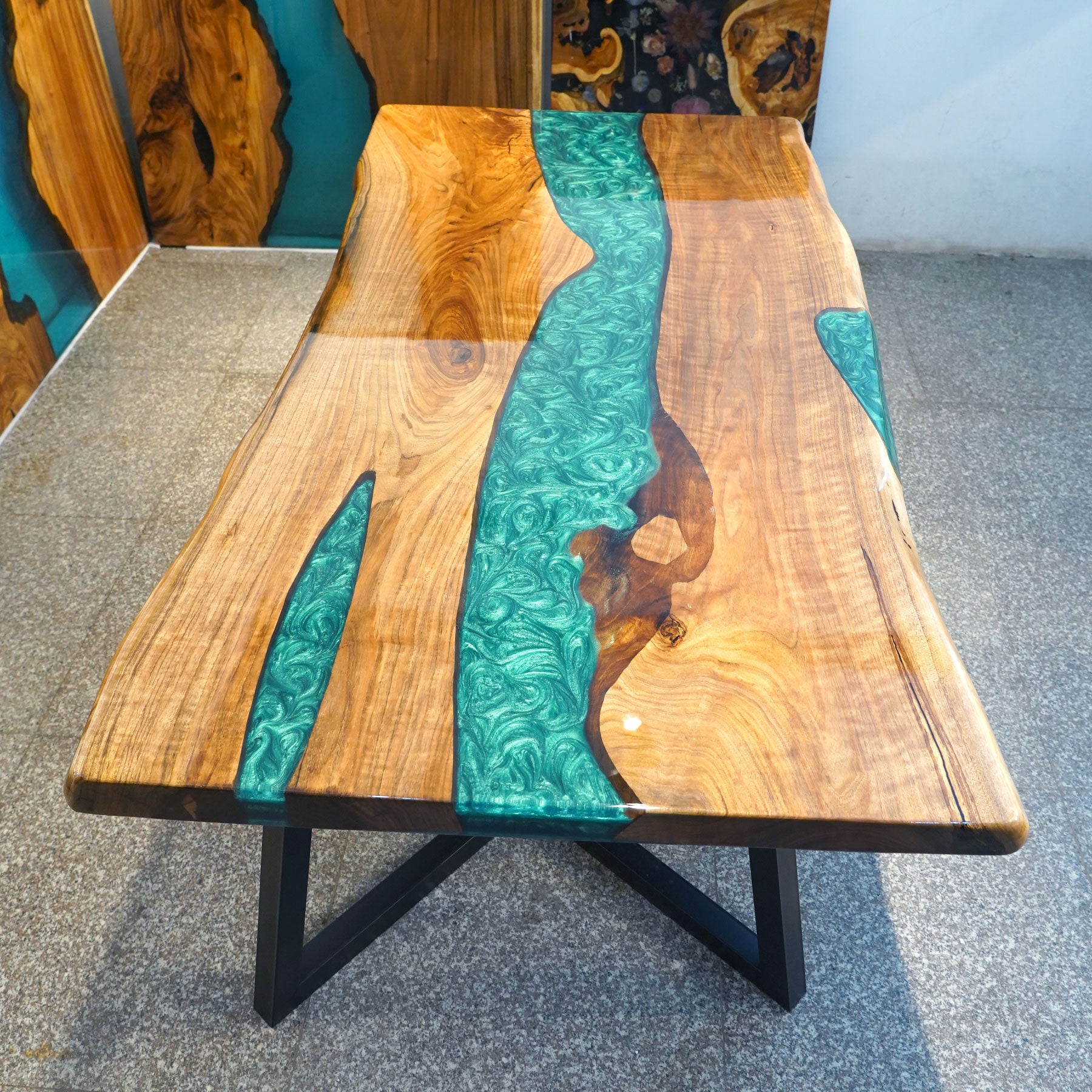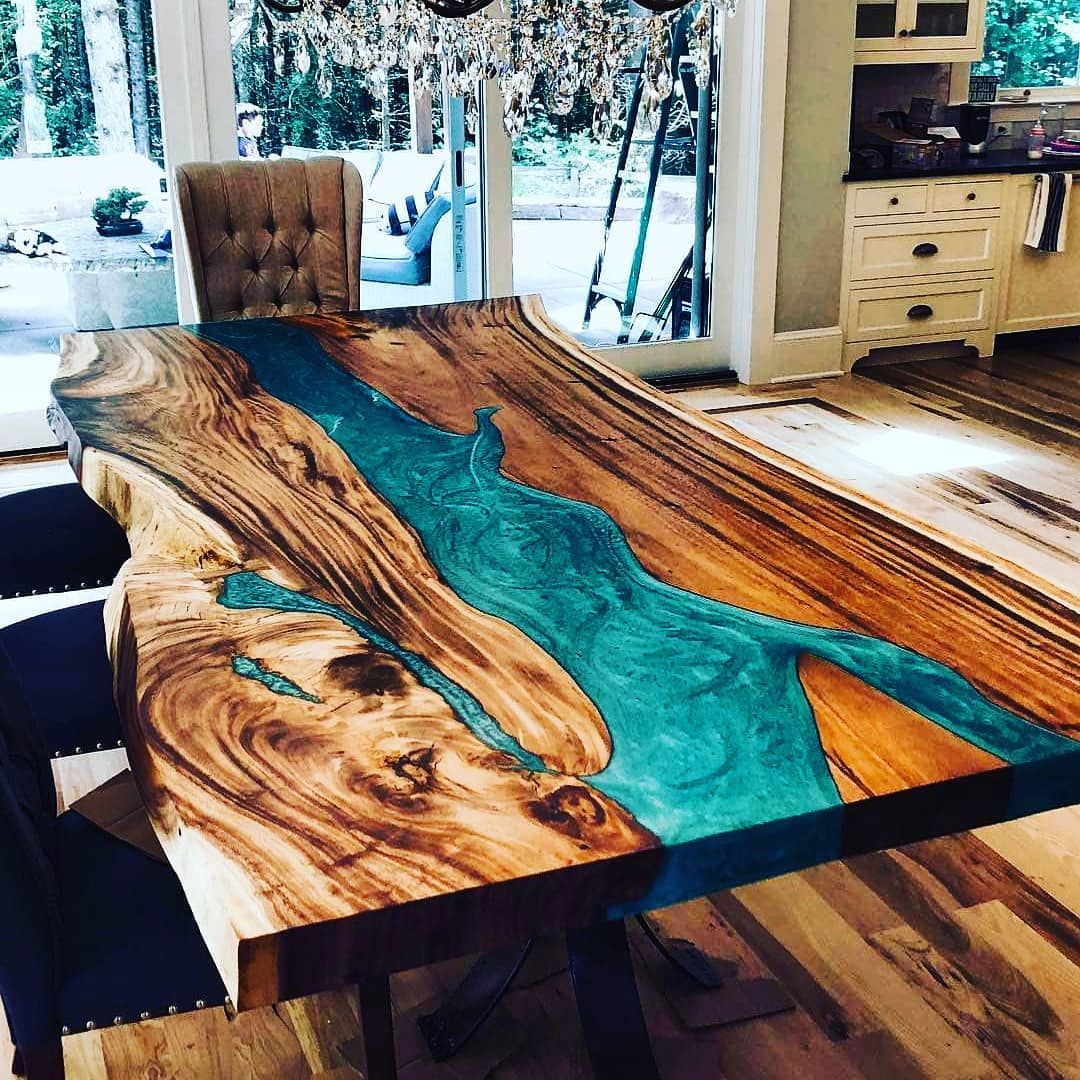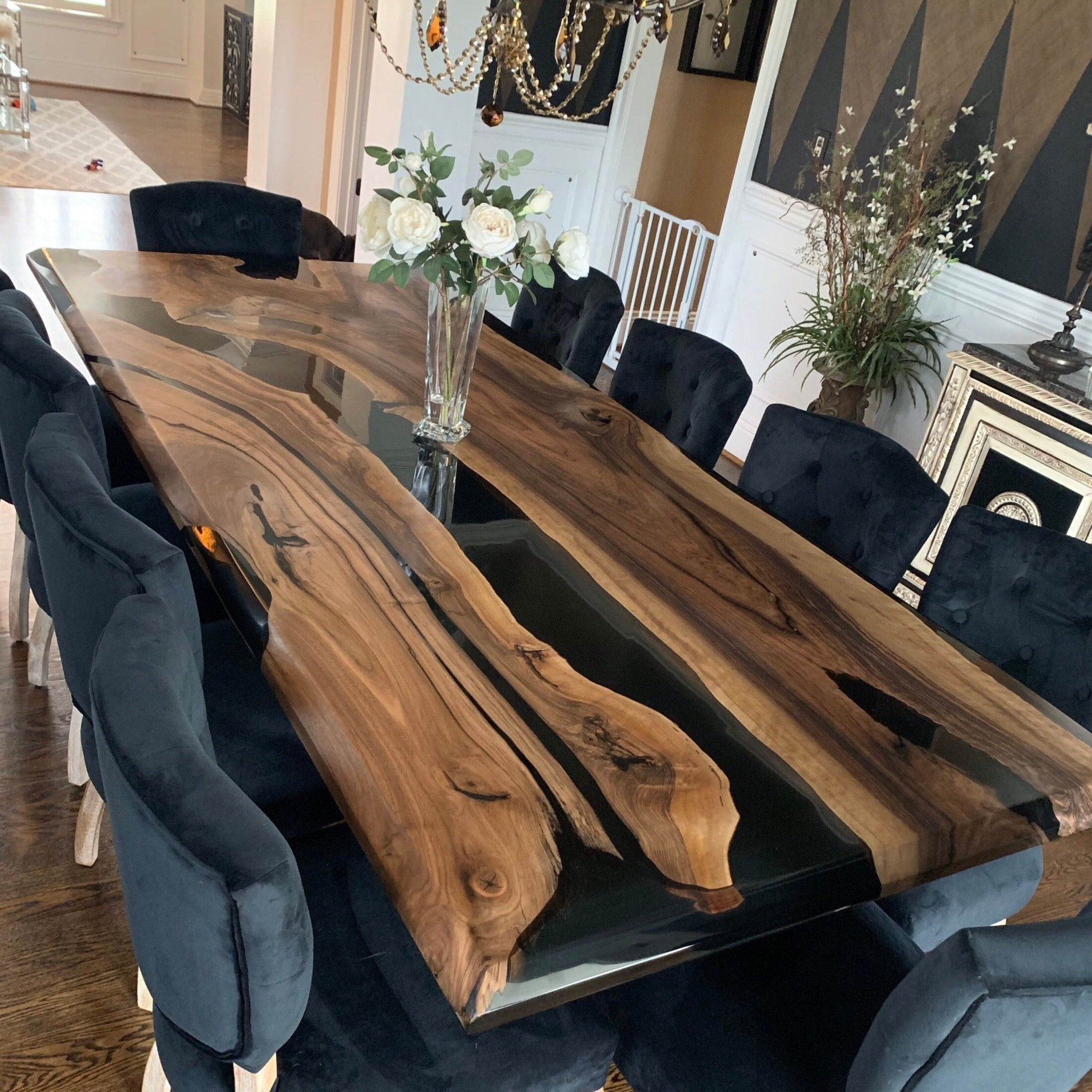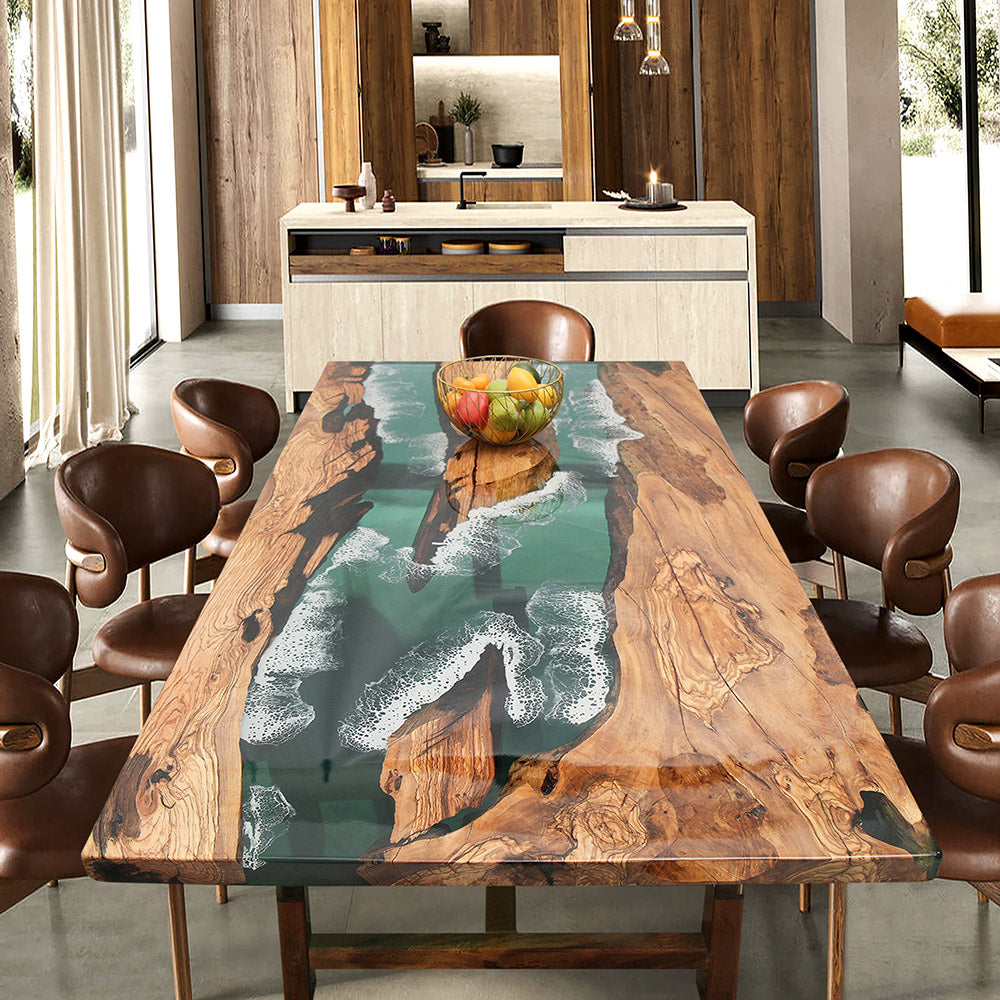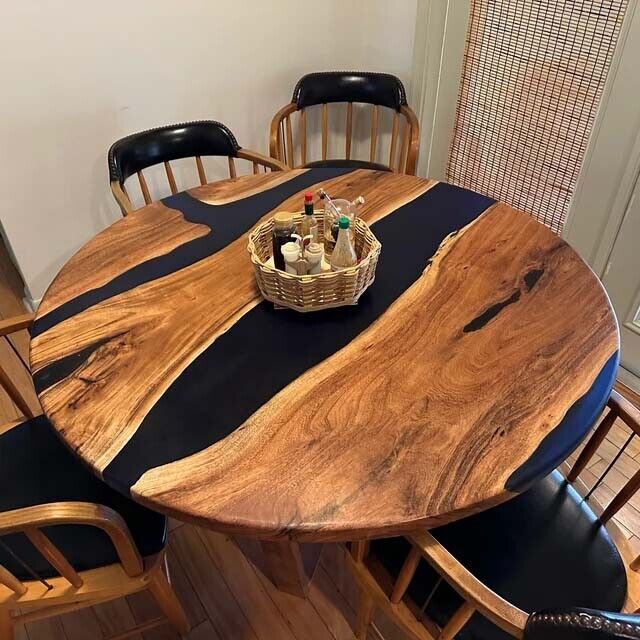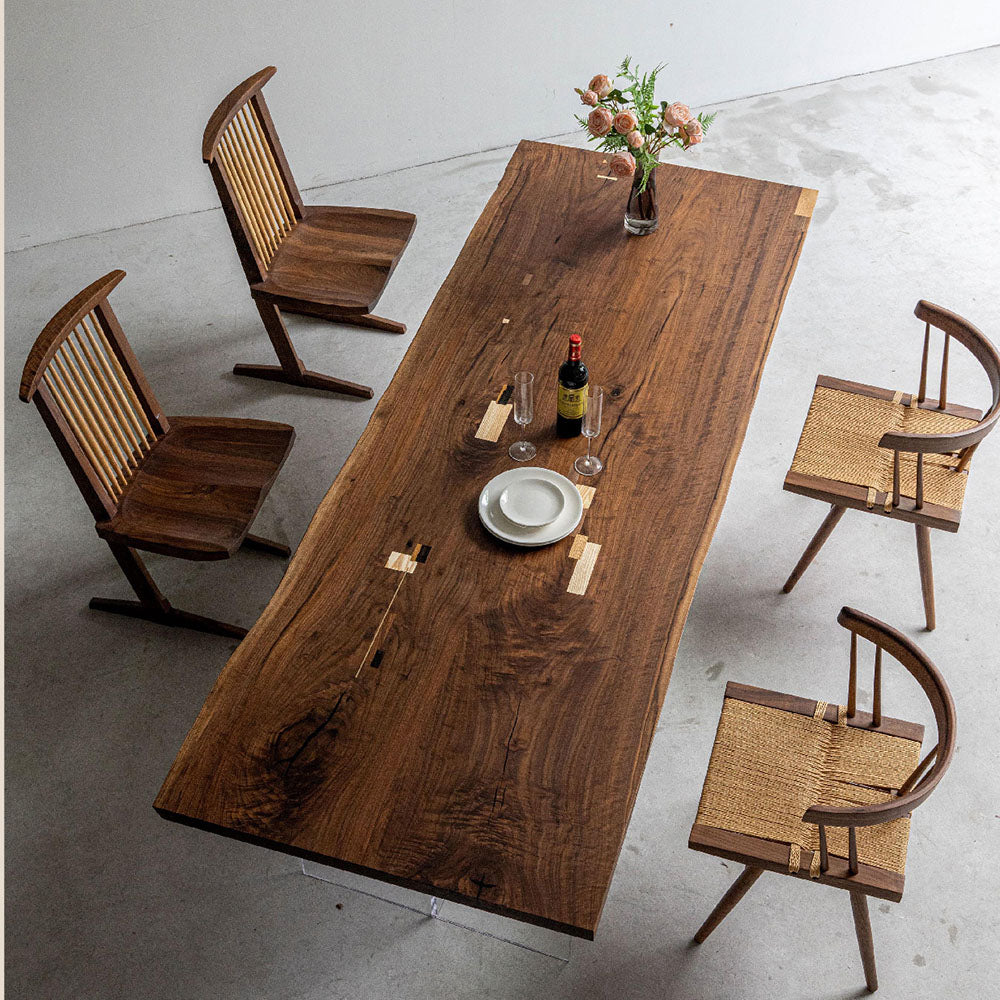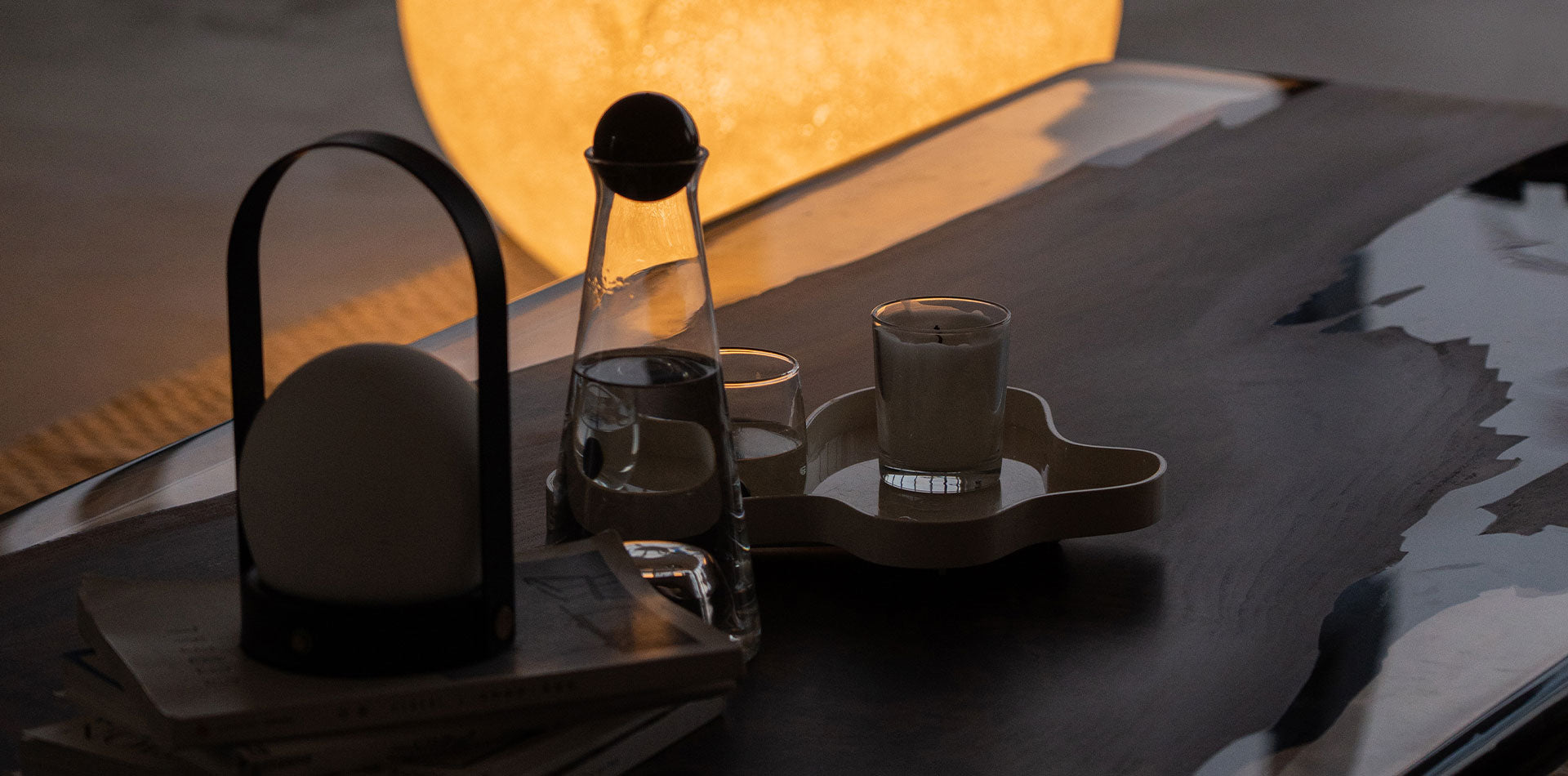
Epoxy tables represent a stunning fusion of art and functionality, experiencing a surge in popularity in recent years. Renowned for their glossy surfaces and the ability to encapsulate objects and colors, these tables provide a unique aesthetic that can transform any space. However, like any material choice, there are advantages and disadvantages to consider. In this comprehensive article, we delve into the various pros and cons of epoxy tables. From unparalleled customization options and robust durability to considerations of cost and maintenance, our goal is to provide a balanced perspective. Whether you're a homeowner looking to add personality to your living space, a designer seeking innovative materials, or just curious about the hype surrounding these tables, this article serves as your guide to understanding the complexity of epoxy resin tables. Join us as we explore the multifaceted world of epoxy resin furniture, weighing the pros and cons to help you make informed decisions.
Major Advantages of Epoxy Tables:
Durability and Strength: The epoxy resin used in these tables is exceptionally sturdy and resistant to wear. It is less prone to scratches, dents, and damage compared to traditional wooden or glass tables.
Moisture Resistance: Epoxy resin exhibits moisture resistance, making these tables suitable for environments prone to spills, such as kitchens and dining areas.
Customization: One of the most notable advantages of epoxy tables is their high level of customization. You can choose from a variety of colors, patterns, and designs, even incorporating objects like shells, stones, or wood pieces into the design.
Unique Aesthetics: Transparent or colored resin can create stunning visual effects, such as depth illusions or mimicking natural scenes like rivers or oceans.
Easy Maintenance: Epoxy resin tables are easy to clean and maintain. They do not require special cleaners or treatments and can be wiped with a simple cloth and mild cleanser.
Heat Resistance: High-quality epoxy resin possesses heat resistance, meaning it can withstand hot dishes or direct sunlight without damage.
Eco-Friendly: Some epoxy resins are made from bio-based materials, making them a more environmentally friendly choice compared to other synthetic materials.
Long Lifespan: Due to their durability and resistance to various types of damage, epoxy resin tables typically have a longer lifespan compared to traditional wooden or glass tables.
These advantages have made epoxy resin tables a popular choice for both residential and commercial environments, combining functionality with aesthetics.
Disadvantages of Epoxy Resin Tables:
Cost: Epoxy resin may be more expensive than other table materials. The cost increases with customization, size, and design complexity.
UV Sensitivity: Over time, exposure to ultraviolet (UV) light can cause epoxy resin to yellow or degrade, affecting the table's appearance. This is especially relevant for tables placed in sunny areas.
Weight: Epoxy resin tables can be quite heavy, making them challenging to move or transport. This can be a drawback for households or spaces that require frequent furniture rearrangement.
Repair Difficulty: Repairing a damaged epoxy resin table can be challenging. Unlike wood, which can be sanded or patched, epoxy resin requires a more complex repair process that may not always restore the original appearance.
Long Curing Time: The production process of epoxy resin tables involves a curing period, which can take several days to weeks depending on the size and thickness of the resin. This may be a drawback for those needing a table quickly.
Potential Toxicity: During the curing process, epoxy resin releases fumes that can be harmful when inhaled. Proper ventilation and safety precautions must be taken when working with epoxy resin.
Temperature Sensitivity: While epoxy resin generally has heat resistance, extremely high temperatures or direct heat sources (such as placing hot pots) can damage the surface.
Susceptibility to Scratches: Despite overall durability, the surface of epoxy resin tables is prone to scratches, especially in the case of high-gloss finishes.
When deciding whether an epoxy table is suitable for a specific application or environment, it's essential to consider these disadvantages alongside the advantages.
In summary, epoxy resin tables uniquely blend aesthetic appeal and practicality, making them an ideal choice for many. Their customizable options, durability, and distinctive appearance set them apart from traditional furniture materials. However, factors such as cost, sensitivity to UV rays, and potential maintenance challenges should be taken into consideration. Ultimately, whether an epoxy resin workstation is the right choice depends on individual needs, preferences, and the specific environment in which the workstation will be used. This balance of pros and cons should guide consumers in making decisions that align with their lifestyle and design aspirations.
Want to customize your own epoxy dining table?
One of the key attractions of Kazanahome epoxy tables is the ability to customize them according to individual preferences. Customers can choose the type of wood, the color palette for the resin, and even request specific artistic elements to be incorporated, making each table a reflection of personal style.

